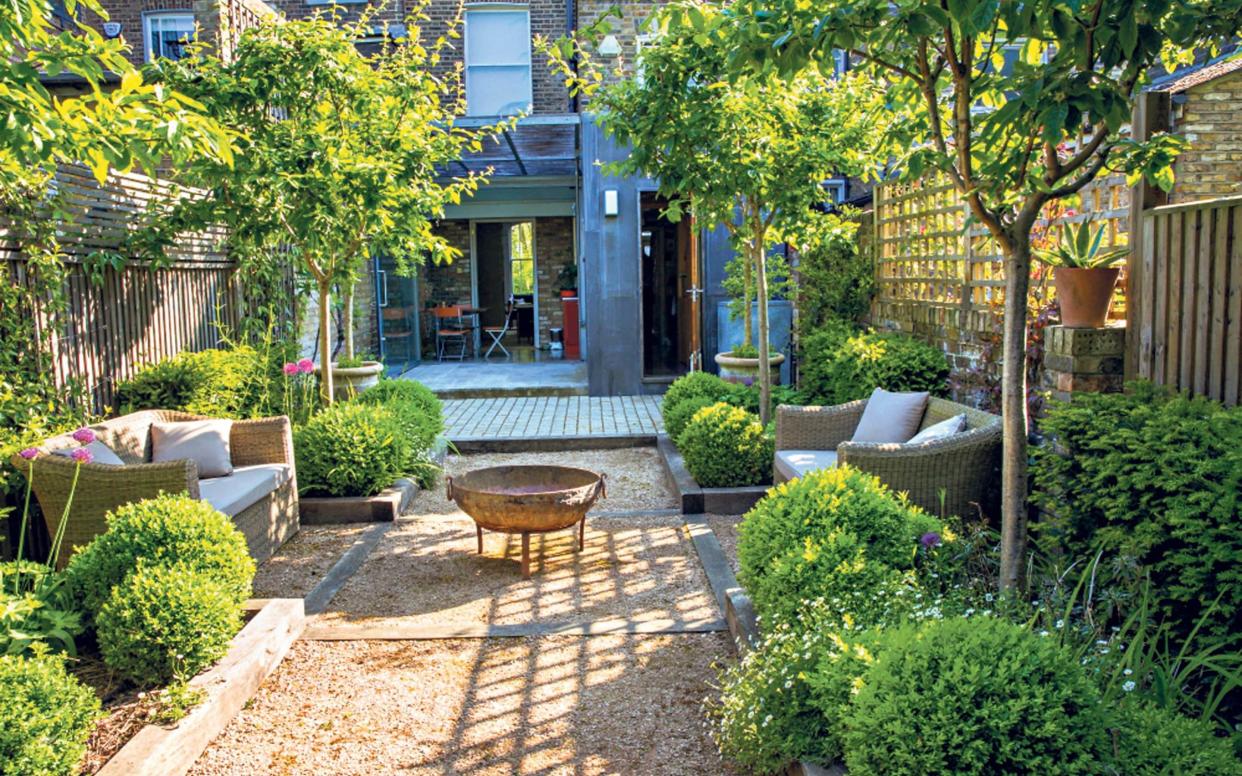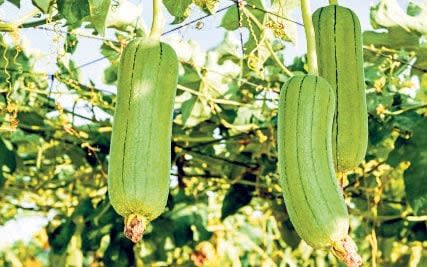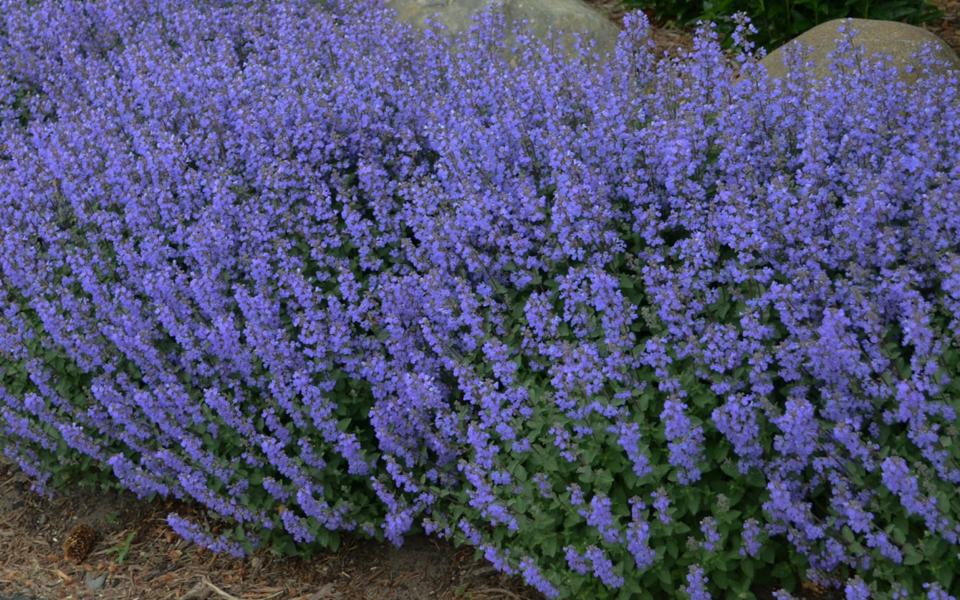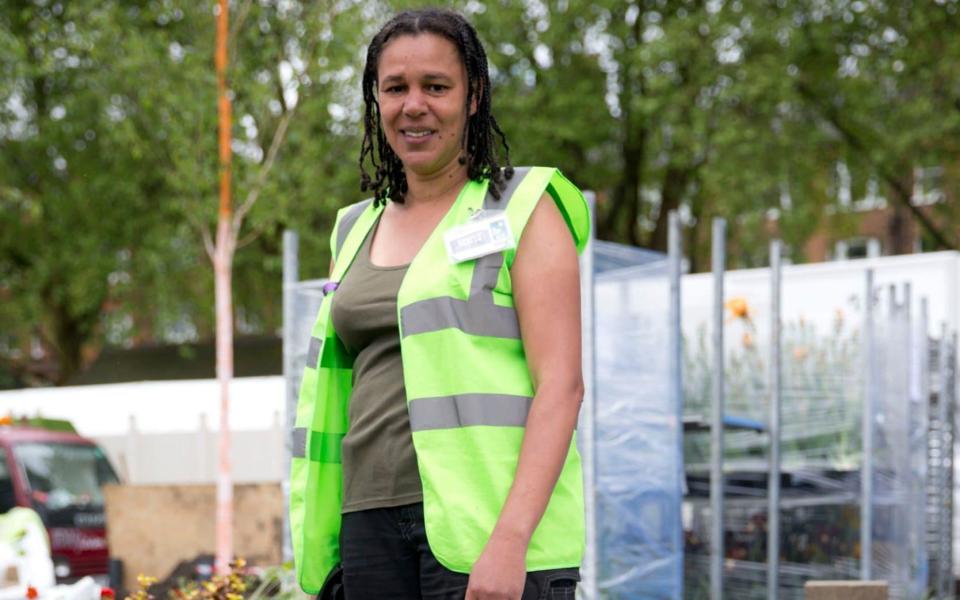The top 20 gardening trends for 2021

In 2020, when the coronavirus crisis hit, a nation of accidental gardeners rediscovered their plots. While everyone was working from home (or furloughed), lockdown gardening took off.
Right on cue, garden centres shut on March 23 and did not reopen in England until May 13 (May 28 in Scotland). The closures coincided with hot weather, peak garden season and Britons with all the time in the world to do up the house and surroundings.
New – and old – gardeners bought their gardening supplies online, or from those essential retailers that remained open. Demand was so high, at times, you couldn’t get hold of products ranging from swingballs to seeds, bulbs to barbecues.
When garden retailers reopened there were plant shortages because growers had not been able to work during the lockdown. Some nurseries lost millions – but the clamour for plants was so great, right through into winter, that many eventually clawed back many of their losses.
Gardening winners in 2020 were mail order companies, “essential” retailers such as Wilko and B&Q and, of course, supermarkets. Importers did well, filling gaps in demand; this is a concern for 2021 – importing plants will be more difficult thanks to Brexit. There could also be delays at ports.
Losers were the big garden charities such as the National Trust and RHS; closures meant loss of revenue from events, cafés, membership and retailing. The legacy of the rollercoaster year is an army of up to three million new gardeners. How many will stay engaged when we are all vaccinated remains to be seen.
Greener living
Peat

Gardeners will buy more peat-free compost in 2021. In 2020, pandemic-led supply shortages meant many gardeners just bought whatever they could get.
During the year, sales of peat-free compost almost doubled to 23 per cent of the market, although to no one’s surprise, retailers missed their 2020 target to voluntarily phase-out the sale of peat.
Environmentalists got tired of waiting and lobbied the Government to end peat use, highlighting how damaged peatlands produce greenhouse gas emissions that contribute to climate change.
Meanwhile, some retailers have finally reacted. Dobbies, the UK’s biggest garden centre chain, has committed to 90 per cent reduction in sales of bagged peat-based composts in 2021. B&Q will phase out bagged own-brand peat sales by the end of 2021.
Look out for these peat-free compost brands: Dalefoot, Melcourt, Happy Compost, New Horizon and Miracle-Gro peat-free.
Wilderness gardening

In 2020, Evergreen Garden Care found the Instagram tag #wildgarden was the second most popular gardening trend on the social media site (after balcony gardening) with 91,777 posts.
Garden designer Andrew Fisher Tomlin says in 2021 we should be leaving at least 10 per cent of a garden to its own devices as a way of balancing residential client needs with helping wildlife.
He says this would involve “allowing anything to grow and leave some wilderness in just part of the garden. whatever its size. It is a small action but is a positive step in the right direction. I’m inspired by the rewilding we are seeing in agriculture.”
Tree planting
The Government and many environmental charities will urge us to plant more trees in 2021 to meet a UK target to plant 30,000 hectares of trees a year by 2025.
Britain’s best-known tree grower Hillier has even bought a new nursery in Hampshire’s Meon Valley. Says Hillier’s Chris Francis: “Demand for UK-grown trees is getting bigger and bigger.”
Look out for a Kew/Botanic Gardens Conservation International/Sky conference in February called Tree Planting for Biodiversity and Carbon Capture (visit kew.org).
What we'll grow
Loofahs

Growing your own loofah fits the wellbeing agenda perfectly. National Trust gardeners in the walled kitchen garden at Knightshayes have done a roaring trade selling them in the shop.
Eat them like courgettes or let them mature, rinse off the old flesh and use the skeleton to mindfully scrub your back. The quirky throwback plant is now being grown in quantities by Essex bedding nursery WD Smith for sale in garden centres as 13cm young plants, while Suttons now sells loofah seeds.
New plants to grow

There’s a trend away from buying trays of seasonal bedding plants for short-term colour and interest in spring and autumn. Today’s arguably more eco-conscious approach is to invest in more long term hardy perennials. Commercial seed and young plant supplier Ball Colegrave, traditionally a bedding specialist, says it can see a future where perennials can match seasonal bedding in popularity.
For 2021, Ball Colegrave recommends Nepeta faassenii ‘Purrsian Blue’, Agastache ‘Morello’, Leucanthemum x superbum ‘Macaroon’ and Sedum ‘Little Miss Sunshine’, while new plant expert Graham Rice tips compact pampas grass Cortaderia selloana Tiny Pampa and the novel Heuchera ‘Frilly’.
Trials at RHS Hyde Hall Floral Fantasia in Essex in 2020 produced a clutch of top performers such as the Sunbeckia series of half-hardy annual rudbeckias.
Garden designers are also driving the move away from bedding plants. Pollinator expert and influencer Professor Dave Goulson of the University of Sussex told the Society of Garden Designers’ winter conference that many annual bedding plants “have been intensively bred and have become unattractive to insects. Instead, focus on planting traditional cottage garden perennials and herbs.”
Grow your own

Grow-your-own fever during 2020 saw seed shortages and sales increases of 3,000 per cent of some vegetable varieties. “People have always grown their own in times of crisis,” says Paolo Arrigo, of seed specialist Seeds of Italy.
Arrigo says compact tomato varieties (e.g. ‘Sungold’) will always be the most popular choice, along with stripy courgette ‘Romanesco’. He cites potential Brexit-led food shortages as another reason for lots more GYO in 2021.
Many vegetable seed and plant sales were inspired by the restaurant shutdown, with frustrated foodies jumping on chef-driven social media campaigns such as #kitchenfarmingproject. And missing out on overseas travel boosted sales of many flavours that remind gardeners of abroad, such as truffles and ‘Roma’ tomatoes.
Andrew Tokely, horticultural director of Essex-based Kings Seeds, says: “Customers are eating everything. Trends don’t change much – top sellers are tomatoes, peppers and chillies, beetroot and runner beans.”
In the news
Diversity campaigns

In 2016, Juliet Sargeant became the first black person to design a Chelsea Flower Show garden in the show’s history. She said at the time that there were barriers to entry into gardening for black and ethnic minorities.
Not much happened to change this before 2020’s Black Lives Matter movement percolated into horticulture. Sargeant told a Diverse Landscapes webinar: “The people in positions of power in our industry are the people who have overseen the current situation. Do we need new blood?”
One development is the appointment of diversity and inclusion officer Glen Willie at the RHS.
Flower shows
More virtual and small country flower shows where it will be easier for visitors to socially distance are planned for 2021. The Spring Virtual Flower Show (April 17-18 2021) is being organised by Paul Dibley of streptocarpus specialist Dibleys Nurseries.
He is aiming to build 100,000 Facebook followers for the show, which will feature dozens of nurseries as well as talks and Q&As. Advantages of the virtual show are that it is safe, free and not reliant on pandemic lockdown changes.
Media moves
Hortrenpeurs
“Plant Geek” Michael Perry is known as a gardening presenter on shopping channel QVC – although he doesn’t like to be pinned down: “I’m actually freelance, call me a ‘hortpreneur’.”
This reflects the gig economy – gardening personalities are increasingly podcasting, broadcasting, fronting campaigns and doing lots of social media.
TV gardener David Domoney says more gardening content from hortpreneur types on daytime TV shows such as Love Your Weekend, This Morning and Morning Live is spreading gardening’s appeal to a non-specialist audience, and that TV commissioners want more for 2021.
The great escape from Covid misery
We are seeing a long-term shift towards using the garden as an escape from the daily gloom and uncertainty of the pandemic. Outdoor living has been forced on Britons, but was helped along by the fantastic weather in the early part of 2020.
Working in your “shoffice” (shed/office) and eating and socialising in the garden is becoming de rigueur, as shown by garden furniture and barbecues selling out in 2020 and increased sales of patio heaters (up 400 per cent), suites of weatherproof outdoor furniture, lighting, fire pits, kitchens and living pools (as opposed to swimming ponds – these are a biological version of a swimming pool that aren’t filtered by plants but are chemical-free and look more natural than conventional pools).
Blooming business
Flower arranging

Simple stay-at-home pleasures such as flower arranging are set to grow as a trend in 2021. This will be given a boost by an exhibition on midcentury society floral designer Constance Spry at London’s Garden Museum, March 31-June 20.
Spry offers a fresh perspective on modern living, says museum director Christopher Woodward: “She would not have liked being called nostalgic as she was so radical, prefiguring many modern trends (e.g. using veg plants in displays, foraging).
She inspires today because she encourages people to question formulas, and asks you to think of flower arranging as an extension of the garden.” Very du jour in lockdown Britain.
Plant box subscription services
As consumers eschew physical shopping, plant subscription box sales, delivered to subscribers’ doorsteps and in some cases letterbox-friendly, are booming. Many £20-£30 per month schemes are for houseplants, but some companies are now looking at wider ranges for 2021.
Lazy Flora has increased business tenfold in 2020. Founder Claire Ransom says: “People reconnected with gardening and it seems to have stuck.”
Touchy feely
Gardens inspired by and designed for therapy, wellbeing and mental health are everywhere. The Society of Garden Designers spring 2021 conference promises (deep breath): “…our speakers will take us on a journey through our disconnected modern lives, back to our inherent subconscious connection to nature that is within us all and onward to a much brighter, well-connected and balanced future.”
The RHS has renamed its Chelsea “Urban Gardens” category as “Sanctuary Gardens” though it includes many of the designs held over from 2020. The aim is “to re-engage with nature for mental and spiritual wellbeing while shining a light on the beauty and diversity of nature”.
The biggest search trends of 2020
Pinterest noted increases in garden-related search terms over 2020. Most of these points relate to interiors and “bringing the outdoors in”, which makes sense given that everyone spent so much more time inside.
90%
increase in “front door planters”
75%
increase in “bedroom plant decor”
65%
increase in “plant shelf”
60%
increase in “living room plants”
60%
increase in “bathroom plant ideas”
55%
increase in “Zen garden design”
The interest in Zen garden design suggests people are using plants as a way to promote their wellbeing by relaxing and connecting with nature, rather than just for visual effect.


